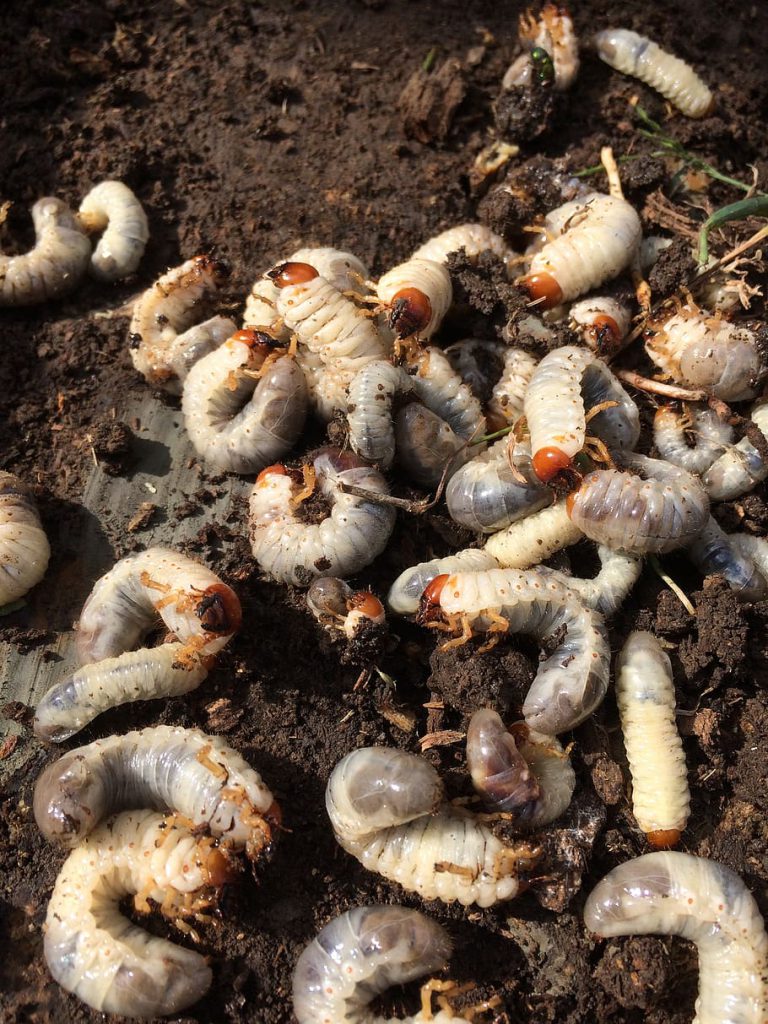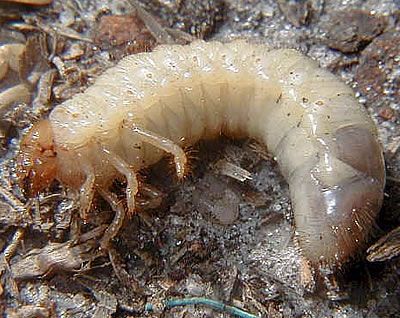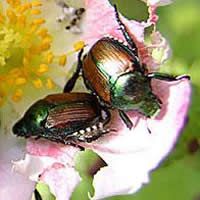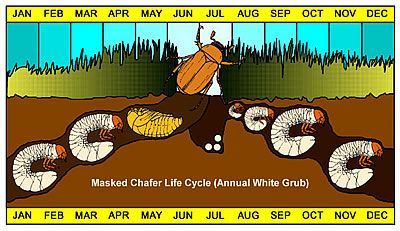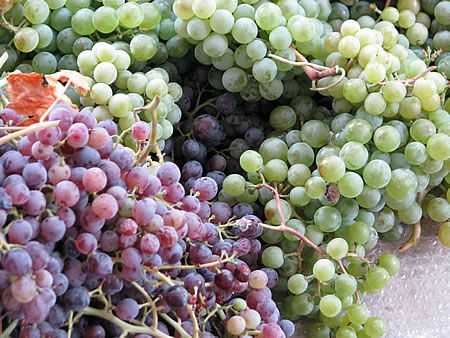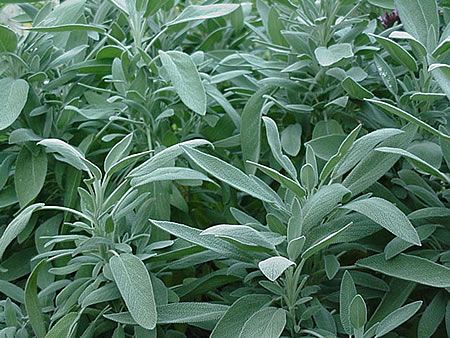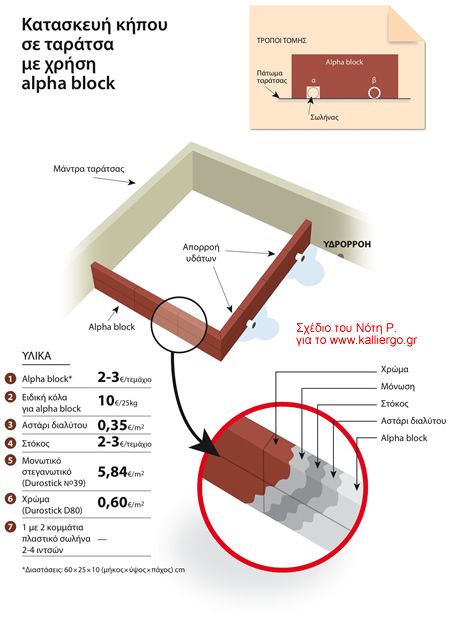Have you encountered white worms in compost? They are called grub worms. Do you know what they really are? Do you know if they are harmful to the garden and plants or beneficial?
The truth is that a compost bin is a small ecosystem.
Dozens of organisms are born, live and die in it, as organic materials are turned into compost. Among these organisms, worms stand out.
White worms – Grub worms
In all compost-related texts, you will find references to earthworms. Earthworms are the long brown worms found in the garden and pots and are considered beneficial. The live on decomposing organic matter and their pups make on of the best organic fertilizers.
But there are many times when we find fat, short, ugly, white worms in compost. What are they? Are they beneficial?
These white worms are called grub worms or white worms (ασπροσκούληκα or μηλολόνθη in Greek). Grub worms are in fact beetle larvae.
Japanese Beetles
Some of the Greek names for these insects are:
- χρυσοκάνθαρος
- φυλλοπέρθα
- σκαθάρι
- μηλολόνθη
The English names of these insects are:
- June beetles
- Japanese beetles
- may beetles
- cockchafers
- scarabs
As long as these grub worms are in the compost and are not transported with the compost into the garden, they do not cause any problems.
When grub worms turn into a problem for the plants?
The problem occurs when you don’t pay attention and carry the white grub worms with the compost into your garden or pots.
Why?
Because grub worms feed with the roots of plants.
There is an easy and simple way, to ensure that grub worms will not be carried into your garden.
When you take the finished compost out of the compost bin, use a sieve (I use a chicken wire) to filter out the coarse objects.
Worms and other coarse material will be trapped on the “filter”. Only the very fine parts of the compost will pass through the wire (see photo).
Filter the compost
The grub worms, along with any other coarse material, are thrown back into the compost or just killed.
Normally white grub worms live in the soil and feed by eating the roots of plants.
A symptom of having white grub worms in the garden is the appearance of brown/yellow areas in the grass.
Another problem with the presence of white worms in the garden, is that they attracts rats for whom they are food.
The rats, in order to find the grub worms, dig and make holes. The grub worms eventually turn into beetles.
Grub worms – Life cycle
The life cycle of rub worms is simple.
During the summer the beetles fly freely. Some species of beetles are active in the morning and others in the evening.
After the beetles mate, they go into the ground to lay their eggs.
After the eggs hatch, very small worms emerge that begin to feed on your garden. Often at this stage, the damage is not visible because the worms are very small.
During September and October, the grub worms continue to feed and grow. In November, the worms stop feeding and dig to a depth of 8 to 30 cm to build their winter nests.
Life cycle. Transformation of grub worms into beetles
Conclusion
As long as the grub worms are in the compost they do not cause any problem. On the contrary, they also contribute to the creation of the compost.
When you take the compost out of the compost bin, make sure it is free of grub worms. They should not be carried into your garden or pots.
Sources
https://www.dirtdoctor.com/garden/Grubworms_vq818.htm
https://www.allaboutworms.com/grubs-and-composting
Tags: BEETLES • COMPOST • CULTIVATE • GARDEN • GRUB WORMS • SOIL • WHITE WORMS • WORMS

